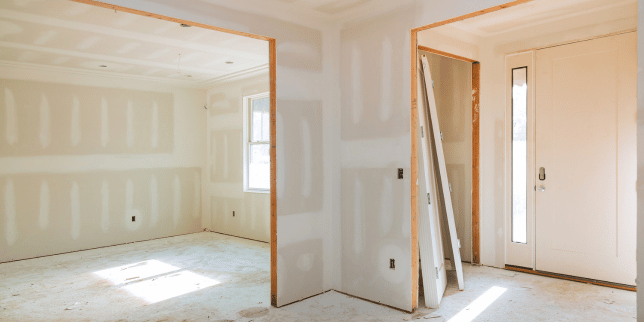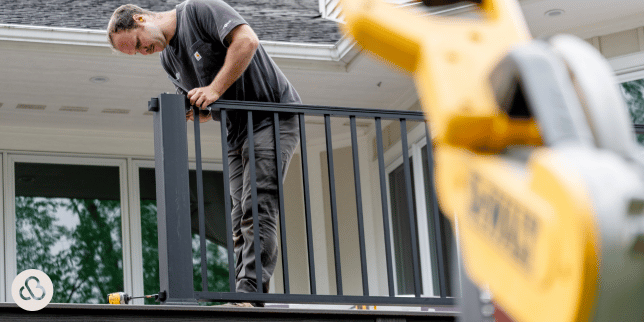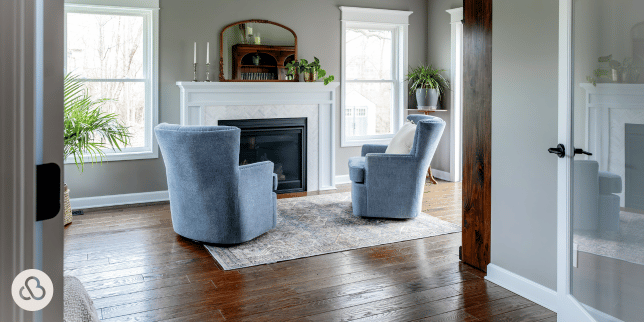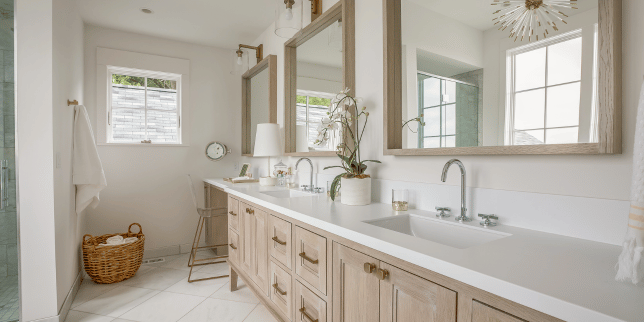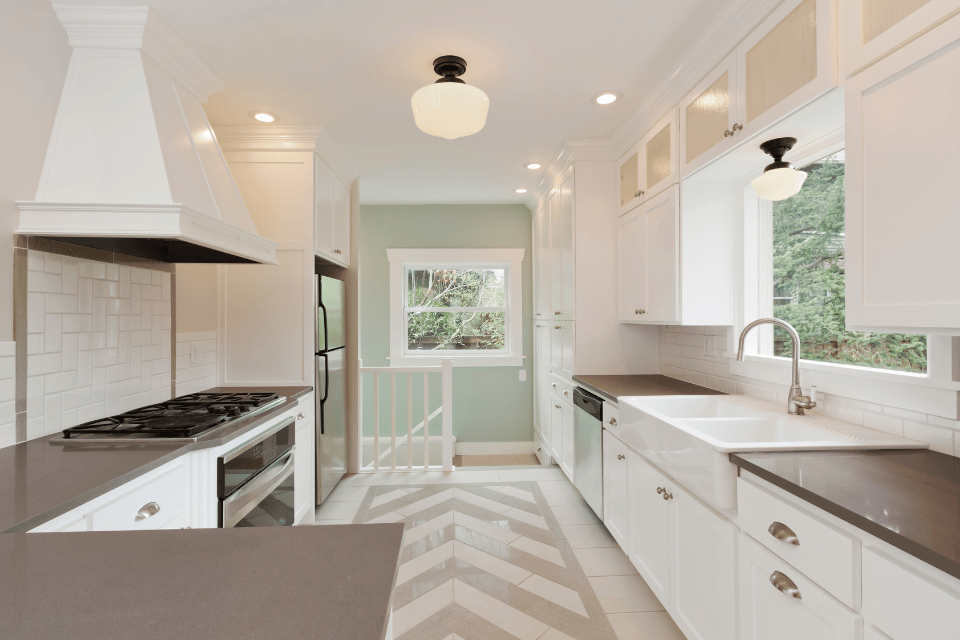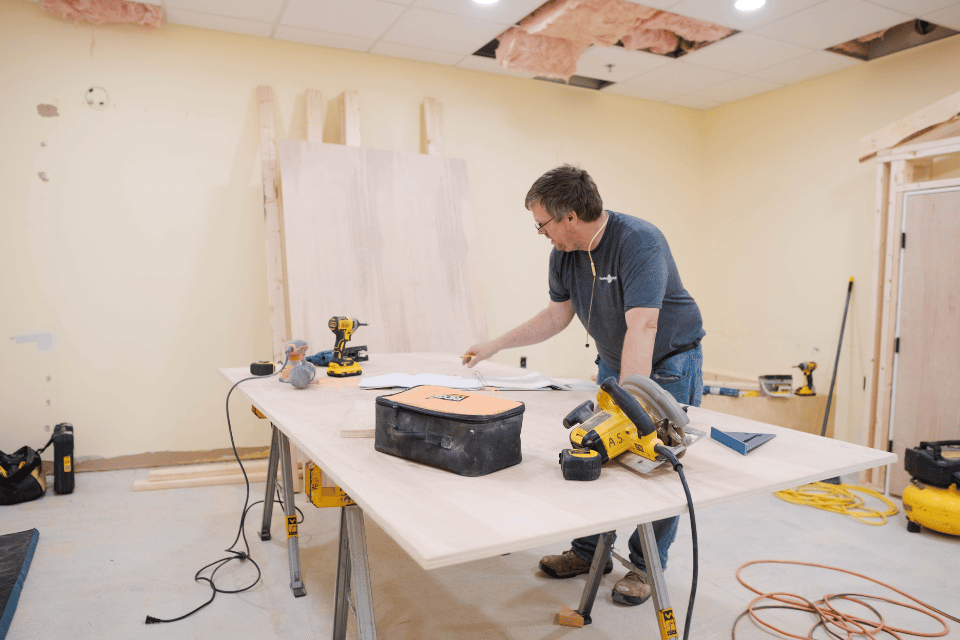What is a Self-Managed Home Remodel?: Frequently Asked Questions
April 19th, 2024
8 min read

Are you considering a home remodel but need help figuring out where to start? Many homeowners face uncertainty when contemplating a renovation project. Managing contractors, timelines, and budgets can pose challenges and lead to future issues. If you're feeling lost amidst the decisions and complexities, this article is for you.
At Custom Built Design & Remodeling, we have seen the uncertainties homeowners encounter during self-managed remodels. With over 15 years of industry experience, we've guided thousands of clients to build their dream space.
In this article, we’ll review what self-managed home remodels are and if they are the right approach for your project:
- What Exactly is a Self-Managed Home Remodel?
- What Are the Typical Responsibilities I Would Manage?
- What Are the Benefits of a Self-Managed Remodel?
- What Are the Challenges of a Self-Managed Remodel?
- How Can I Prepare for a Self-Managed Remodel?
- Is a Self-Managed Remodel Right for Me?
- What Are Some Common Misconceptions About Self-Managed Remodels?
- How Can I Ensure Quality Workmanship in a Self-Managed Remodel?
- How Can I Stay Organized During a Self-Managed Remodel?
- What Are Some Red Flags to Watch Out for When Hiring Subcontractors for a Self-Managed Remodel?
1. What Exactly is a Self-Managed Home Remodel?
A self-managed home remodel is a project where you manage the renovation process instead of hiring a general contractor. In a self-managed remodel, you oversee hiring subcontractors, budgeting, and scheduling.
During DIY projects, you tackle the design and build work yourself. Self-managed remodels offer more independence and potentially lower costs compared to design-build firm or general contracting remodels. This approach will require more responsibility and involvement from you.
2. What Are the Typical Responsibilities I Would Manage?
In a self-managed remodel, you handle:
- Acquiring permits
- Managing the budget
- Hiring subcontractors
- Buying materials/Resource management
- Managing the project timeline
Here are a few ways to tackle the responsibilities:
- Create a Detailed Project Plan: Develop a comprehensive plan outlining all remodeling aspects. This will help keep you organized and on track throughout the project. Your plan should include:
- Scope of Work: Define exactly what areas of the home will be remodeled and what changes will be made.
- Construction Plans: Include detailed floor plans, elevation drawings, and any other renderings that outline the structural changes to be made during the remodeling process. Typically your plans are a multi-page document that contain plans dedicated to:
- Set up and protect procedure (example: where will zip walls be located)
- Structural considerations
- Framing plan
- Electrical and plumbing layouts
- HVAC considerations
- And more!
- Material Selections: Specify the types of materials to be used for flooring, countertops, fixtures, and any other relevant components.
- Site Plan: Key logistical aspects such as material storage and staging areas, contractor facilities, dumpster location, home access, pet accommodations, and environmental considerations.
- Permitting Process: Detail the necessary permits and approvals required for the project and include timelines for obtaining them.
- Budget Breakdown: Outline the projected costs for materials, labor, permits, and any unexpected expenses. A dynamic budget model made in excel or another software can allow you to track estimated costs vs actual costs. Giving you a real-time breakdown.
- Timeline: Establish a detailed schedule for each phase of the project, including start and end dates for demolition, construction, and finishing touches.
- Establish Clear Communication: Maintain open lines of communication with subcontractors and vendors. This ensures that everyone is on the same page. Regular updates and meetings can prevent misunderstandings and delays.
- Stay Flexible: Remodeling projects rarely go exactly as planned. So, be prepared to adjust your plans and expectations as needed. Flexibility and adaptability are key to managing a self-managed remodel. If you in an occupation that does not allow flexibility, consider this as a potential road block. You will need flexibility to meet contractors onsite, review work, and address problems in real-time.
3. What Are the Benefits of a Self-Managed Remodel?
One of the main benefits of a self-managed remodel is cost savings. By managing the project, you remove the management cost typically paid to a design-build firm or the general contractor who oversees the project.
Here are more benefits you can enjoy during a self-managed remodel:
- Learning Opportunity: Managing a remodel provides valuable project management and home improvement experience.
- Flexibility: Self-managed remodels allow you to work at your own pace and schedule. This accommodates your lifestyle and availability.
- Increased Communication: Direct interaction with subcontractors and suppliers can foster better communication and collaboration. If you enjoy knowing the play-by-play of everything happening, managing your project can give you more energy!
4. What Are the Challenges of a Self-Managed Remodel?
While self-managed remodels offer cost savings and greater control, they also come with challenges. Coordinating subcontractors and managing the project timeline can be time-consuming and stressful. Additionally, if you lack construction knowledge or experience, this could result in mistakes, unnoticed issues, or delays.
Here are other challenges to expect from a self-managed remodel:
- Coordinating Workers: Managing different contractors and their schedules can be hard. This can lead to delays and logistical problems if not handled well.
- Checking Quality: Ensuring the work meets your standards is difficult if you do not have construction experience. Keeping quality consistent across different parts of the project can take time and effort. This issue is more common on a complex project or a remodel that requires multiple subcontractors.
- Dealing with Surprises: Unexpected problems may occur during the remodel, requiring a change to your plans. This requires quick thinking and problem-solving tied to construction knowledge. Every change made after your plans have been finalized, will likely have effects on other aspects of the plan.
5. How Can I Prepare for a Self-Managed Remodel?
Before starting a self-managed remodel, research the renovation process and local building codes. Make a detailed plan with a budget, timeline, and list of needed subcontractors. Finally, you should be prepared to devote time and energy to managing the remodel effectively.
Let’s expand on those strategies:
- Educate Yourself: Two types of people typically self-manage those who have construction experience and individuals who love to learn. This process will require research and determination to complete your project. Depending on the type of project, the amount of research and knowledge required will vary drastically!
- Set a Realistic Budget: Determine your budget early in the planning process and stick to it as closely as possible. Be sure to include a contingency fund for unexpected expenses or changes in scope. Create a dynamic budget model as we discussed above.
- Create a Detailed Timeline: Develop a realistic timeline that outlines each project phase. Factor in time for permits, material procurement, and potential delays to ensure a smooth and efficient remodel. Here is what we prepare our homeowners to expect with a Design-Build remodeling process for a:
6. Is a Self-Managed Remodel Right for Me?
Just like DIY and Full-Service, self-managing a remodel is not a great fit for everyone.
Self-managed remodels typically require less capital and are a great fit for homeowners who have flexibility with their time and construction skills. If your job does not allow flexibility, you are starting a family or new job, or do not have any construction experience and are not passionate about learning the nuances of carpentry or the other mechanical skills required to complete your project, self-managing your home remodel will cause frustration.
Here are a few questions you should ask yourself before pursuing a self-managed remodel:
- Can I handle renovation tasks and manage the project effectively?
- In this season of life, do I have the time it will take to devote to this project?
- Will owning decisions, like choosing materials and hiring contractors give me energy?
7. What Are Some Common Misconceptions About Self-Managed Remodels?
Some homeowners think self-managed remodels are always cheaper than hiring a general contractor. While you typically save some money, owning the management will require a lot of time and work from you. If time is your most valuable asset and you have the financial means, hiring a general contractor or design-build firm will reduce the time and work required from you.
Here are a few tips for navigating the common misconceptions:
- “I Don’t Need Professional Assistance”: We believe in your ability to craft your dream remodel. However, professionals' expertise can help avoid costly mistakes, ensure compliance with building codes, and make the renovation process smoother.
- Understand the True Cost: Self-managed remodels save money on contractor fees but might need more time, tools, and resources. Consider the full scope of your project expenses before deciding if it's the most cost-effective option for your project.
- Manage Your Expectations: It may be easy to think self-managed remodels are easy, but they're often tough and take a lot of time. Be prepared for setbacks and delays, and approach the project with realistic expectations.
8. How Can I Ensure Quality Workmanship in a Self-Managed Remodel?
To make sure the work is done well, homeowners should carefully check subcontractors before hiring them. This means asking for references, checking licenses and insurance, and looking at previous work. Also, keep an eye on construction and deal with problems immediately.
Here are a few more tips for ensuring quality work for your self-managed remodel:
- Establish Clear Expectations: Communicate your expectations and standards to subcontractors before they begin work. Provide a detailed scope of work and plans with construction specifications to ensure everyone is on the same page.
- Monitor Progress Closely: Regularly inspect the work and promptly address any issues or concerns. We recommend walking through the project with each contractor before and after their work is complete. Don't hesitate to ask questions or seek clarification if something doesn't meet your standards.
- Document Everything: Keep thorough records of all communication, contracts, and agreements with subcontractors. When working with subcontractors, it can be easy to forget the step of signing a contract. We recommend ensuring that the contract you sign outlines the scope of work that will be completed. If changes arise, it is wise to sign a Change Order. This can help protect you in case of disputes or disagreements. Because many subcontractors perform the work and run their business, they may not suggest a contract or change order as a part of their paperwork. If this is the case, ask for a contract or change order.
9. How Can I Stay Organized During a Self-Managed Remodel?
Staying organized is crucial for the success of a self-managed remodel. Homeowners can use project management tools such as spreadsheets, calendars, and online project management software to track progress, deadlines, and expenses. Creating a centralized system for storing important documents and communication records helps keep the project on track.
Here are more ways you can stay organized during your remodel:
- Visual Timeline: Make a visual timeline or board in the renovation area to see upcoming tasks and deadlines easily.
- Daily Journal: Keep a journal of daily activities, milestones, and challenges with photos to track progress and find areas for improvement.
- Check-In Meetings: Schedule regular meetings with subcontractors who will be in your home for prolonged periods. Use the time to discuss progress, resolve issues, and ensure everyone is on the same page.
10. What Are Some Red Flags to Watch Out for When Hiring Subcontractors for a Self-Managed Remodel?
Some red flags when hiring subcontractors include lack of licensing or insurance, poor communication skills, and a history of multiple business, complaints, or legal issues. Be wary of subcontractors who bid unusually low or pressure you to make hasty decisions. Trust your instincts and prioritize working with reputable, trustworthy professionals.
Here are more red flags you should look for when hiring subcontractors:
- Limited Experience: Subcontractors who lack experience or expertise in the specific type of work required for your remodel may be a liability. Look for professionals with a proven track record of successful projects like yours. This does not mean you should avoid hiring someone because their business is in the early years of development. We encourage awarding business to new contractors. In the construction industry especially, we need new contractors and support early career business owners! To ensure you have a great experience, ask detailed questions, stay involved in the process, and trust your gut.
- Poor Communication: Pay attention to how responsive and communicative subcontractors are during the hiring process. If they are unresponsive or difficult to reach, it may be a sign of communication issues down the line.
- Lack of Transparency: Beware of subcontractors who are unwilling to provide clear and detailed estimates or who are vague about their pricing and processes. Transparency is key to building trust and ensuring a successful partnership.
Next Steps to Starting Your Home Remodel
Tackling a self-managed home remodel is no small feat. Diving into a remodel with this approach without properly assessing its feasibility could jeopardize your project.
With the right knowledge, however, you can start your remodel with confidence and ease.
In this article, you learned about the basics of self-managed home remodels.
With over 15 years of experience, we've partnered with homeowners like you to realize their remodeling dreams. Our expertise and support are always here for you as you evolve your living space.
Whether planning your next DIY project, tackling maintenance tasks in your newly upgraded spaces, or seeking guidance, we support you every step of the journey. Contact our team for advice, tips, or any assistance you may need to make your DIY remodel successful. We're dedicated to helping you achieve your home improvement goals and ensuring a rewarding experience.
Now that you know more about the ins and outs of self-managing a home remodel, let’s take a look at the design-build method we use here at Custom Built, how we will approach your project, and other ways to vet your remodeling contractors:
- Top 4 Differences Between a Design-Build Firm and a General Contractor - A comparison between design-build firms and general contractors that highlights the pros and cons that each remodeling company brings to the table.
- Dream, Design, and Build: Our Remodeling Process - This guide details how we at Custom Built will approach your remodeling project, including who you will work with and when to expect each crucial step of your renovation to occur.
- Top 8 Questions to Ask Before Hiring a Remodeling Contractor - A list of essential questions to ask your prospective remodeling contractor before hiring them for your project; with additional questions included in each section.
Isabelle has worked at Custom Built for over 7 years, learning the systems from all sides. She has become an industry advisor in the customer relations software HubSpot, has a keen talent for elements of design, and currently leads the marketing team under the innovative Endless Customers system.
Topics:













